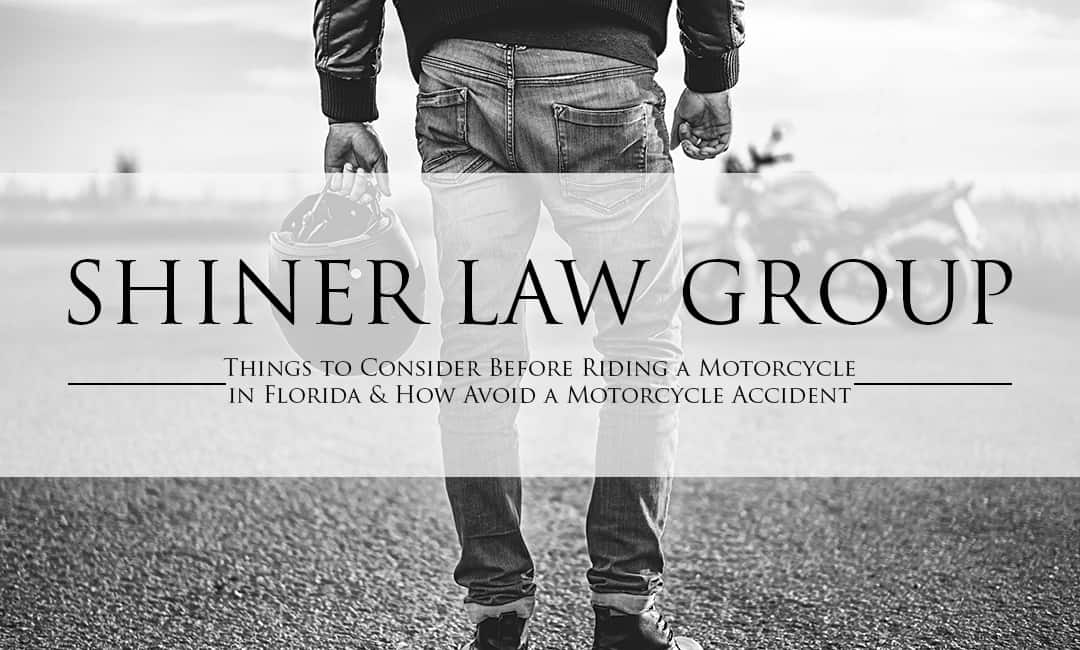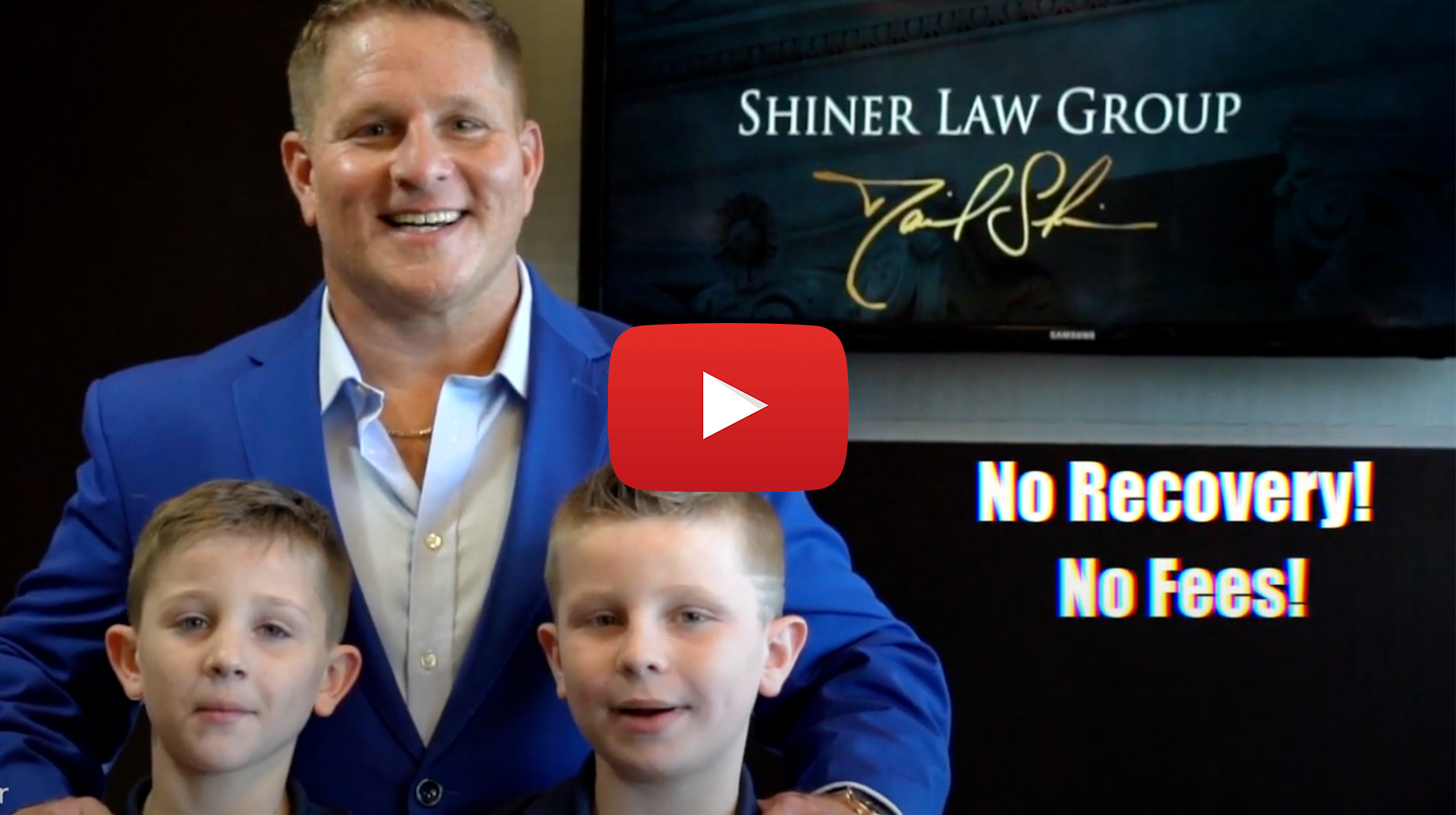Not all motorcycle accident lawyers are the same and each attorney who handles motorcycle accidents has a different experience than the other. For instance, if you sustained a serious injury because of a motorcycle accident in Florida then you would probably be better to hire a local motorcycle injury lawyer. This is one reason why the search engines show results for local West Palm Beach accident attorneys when people search put in search terms such as motorcycle accident lawyers near me.
Riding a motorcycle on the open highway is one of the most enjoyable ways to experience Florida. Feeling of the wind in your hair and the sun in your face can be exhilarating.
For many, nothing compares to the roar of the engine in your ears and the feeling of rolling thunder beneath you; it liberates and thrills at the same time.
In Florida, however, this feeling is often times marred by the carelessness of other drivers who may not fully realize their responsibilities to watch for motorcycle riders.
Don’t be one of them! Drivers must exercise additional precautions when sharing the road with motorcycles.
And if you travel by car, that means you. Understanding the following tips and rules of the road will keep motorcyclists out of danger and YOU out of trouble.

What are the laws in Florida for helmet use?
In a motorcycle crash, a rider is far less protected from serious bodily and head injury than a driver or passenger in an automobile, in which wearing seat belts is required by law and airbags may be deployed in the case of more serious collisions.
Thus, requiring motorcyclists to wear protective head gear seems like common sense, right?
Believe it or not, Florida law does not require individuals 21 years or older to wear a helmet while riding a motorcycle.
Florida statutes provides as follows:
316.211 Equipment for motorcycle and moped riders.—
(3)(b) […] a person over 21 years of age may operate or ride upon a motorcycle without wearing protective headgear securely fastened upon his or her head if such person is covered by an insurance policy providing for at least $10,000 in medical benefits for injuries incurred as a result of a crash while operating or riding on a motorcycle.
This begins to make sense when you realize that the insurance industry has been pushing for relaxed helmet laws for motorcyclists for years.
In their minds, it is more expensive to pay out an insurance claim to a rider who was only injured in an accident than to pay a claim to someone who died in an accident from severe head trauma for failure to wear a helmet.
It seems cold, but reality can be unpleasant when talking dollars and cents. Therefore, no matter what you age, if you ride, stay alive and wear your helmet!
Do you need a special permit to ride a motorcycle in Florida?
Short answer…of course! As you know, there are mechanics and skills involved in riding a motorcycle that differ from driving an automobile.
And your Florida Driver License will not authorize you to hop on a cycle or scooter.
The inherent added danger of riding a motorcycle as compared to an automobile has given cause for the state of Florida to require motorcyclists to take a Basic Rider Course administered through the Florida Rider Training Program.
Only upon successful completion of this course will a prospective motorcycle rider be granted a motorcycle license or have what is known as a “motorcycle endorsement” added to his or her Florida Driver License.
Obtaining your motorcycle endorsement is required by law and easy to do.
Just follow these steps:
- You must already be in possession of your Class E driver license,
- Complete the Basic Rider Course as noted above,
- Obtain your endorsement within one year of having successfully completed the course or the course completion card and PASS waiver will be deemed invalid, and
- Visit the DMV office, pay the required fees, and your endorsement will be added to your Class E driver license.
Can Motorcycles travel in the HOV lane?
Yes, they may, and for good reason.
As an automobile driver traveling in highway congestion, you may sometimes notice motorcyclists traveling in between the lanes through cars.
Frustrating?
Yes, it is as we are sitting in traffic watching these two-wheeled riders easily cutting their way through to their destination.
It’s easy to imagine how close these riders can come to side-swiping your car, perhaps scratching your door panel or even taking out a side view mirror as they fly by.
This practice of “lane splitting” is dangerous and illegal in Florida. And the state has acted to curb this behavior by allowing motorcyclists to travel in the HOV lane.
The idea is to ensure the smooth flow of traffic that keeps all motorists as safe as possible.
Rather than having faster-moving motorcyclists zig-zagging past stopped or slowed automobile traffic, they are granted use of the HOV lane, regardless of how many riders the motorcycle carries, even during the restricted time periods of 7am to 9am and 4pm to 6pm.
This rule was implemented in 2008 per federal regulation; states are permitted to override this rule, but Florida has chosen not to do so.
It just makes too much sense.
Enjoying a 202 horsepower Kawasaki or Harley between your legs on the open road comes with extraordinary freedom but also a considerable level of risk; remember that Florida leads the nation in motorcycle accident fatalities occupying three of the top four spots in the state among deaths by county.
Riding responsibly involves complying with the requirements of the law as well as being conscious of your safety and the safety of other motorists.
So have fun on the road, be safe, and if you are ever involved in an accident, your first call after calling 911 should be to Shiner Law Group.
Our excellent team of attorneys and staff will work tirelessly to represent your interests, not the insurance companies’ interests, and ensure you are compensated for your injuries.

